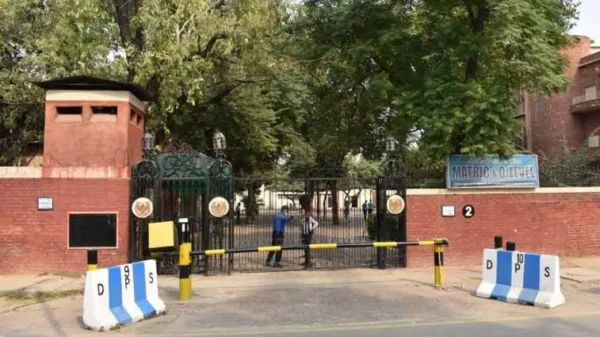President Asif Ali Zardari ratified the 26th Constitutional Amendment on the advice of Prime Minister Shehbaz Sharif after crucial amendments were passed by Parliament during a midnight session.
Earlier, Prime Minister Shehbaz Sharif had sent a formal request to President Zardari for his assent to the 26th Constitutional Amendment following its passage in both houses of Parliament with a two-thirds majority.
In his address to the National Assembly today (Monday) after the amendment’s passage, Prime Minister Shehbaz Sharif hailed it as a significant demonstration of national unity and consensus.
He expressed confidence that this legislation would provide easier and faster access to justice for the common man, calling it a major milestone. He noted that the amendment fulfilled an important part of the unfinished agenda from the Charter of Democracy, signed by political parties in the past.
The Prime Minister expressed optimism that the amendment would help secure and strengthen the country’s future, commending political parties for setting aside personal interests to act in the best national interest. He also extended his gratitude to the coalition partners and Jamiat Ulema-e-Islam-Fazl (JUI-F) for their support in passing the amendment.
Key Features of the Bill:
- Right to a Healthy Environment:
- A new Article 9A is added, granting every citizen the right to a clean, healthy, and sustainable environment.
- Elimination of Interest:
- An amendment to Article 38(f) mandates the complete elimination of riba (interest) by January 1, 2028.
- Judicial Independence and Protection:
- Amendment to Article 48(4) states that advice given to the President by the Cabinet or Prime Minister cannot be challenged in any court or tribunal.
- Article 81 includes provisions for funding judicial bodies like the Judicial Commission of Pakistan and the Supreme Judicial Council.
- Judicial Performance Evaluation:
- Article 175A is revised to establish a performance evaluation system for High Court judges, ensuring accountability and addressing inefficiencies.
- Supreme Court Appointment Criteria:
- Revised Article 177 specifies that candidates must have served as High Court judges for at least five years or practiced for 15 years in the High Court and Supreme Court to qualify for the Supreme Court.
- Judicial Appointment Process:
- Article 175A is further modified to change the composition of the Judicial Commission responsible for appointing Supreme Court judges. A Special Parliamentary Committee will select the Chief Justice from among the three most senior judges. This committee will include representatives from both the National Assembly and Senate, ensuring proportional representation based on parliamentary strength, with appointments finalized by a two-thirds majority vote.
- Election Organization:
- Amendment to Article 81 allocates funds for organizing and conducting elections for the National Assembly, Senate, Provincial Assemblies, and local governments.
- Judicial Accountability:
- Provisions for annual performance evaluations of High Court judges by the Judicial Commission have been added. Unsatisfactory performance will lead to opportunities for improvement; if performance does not improve, the matter will be referred to the Supreme Judicial Council.
- Tenure of Chief Justice:
- Amendment to Article 179 limits the Chief Justice’s tenure to three years, irrespective of age, with mandatory retirement after completing the term.
- Supreme Court Appointment Criteria:
- Changes to Article 177 redefine the qualifications for Supreme Court appointments, requiring candidates to have served as High Court judges for at least five years or to have practiced as advocates for at least 15 years.
These changes aim to enhance legal governance, judicial accountability, and environmental rights in Pakistan.










